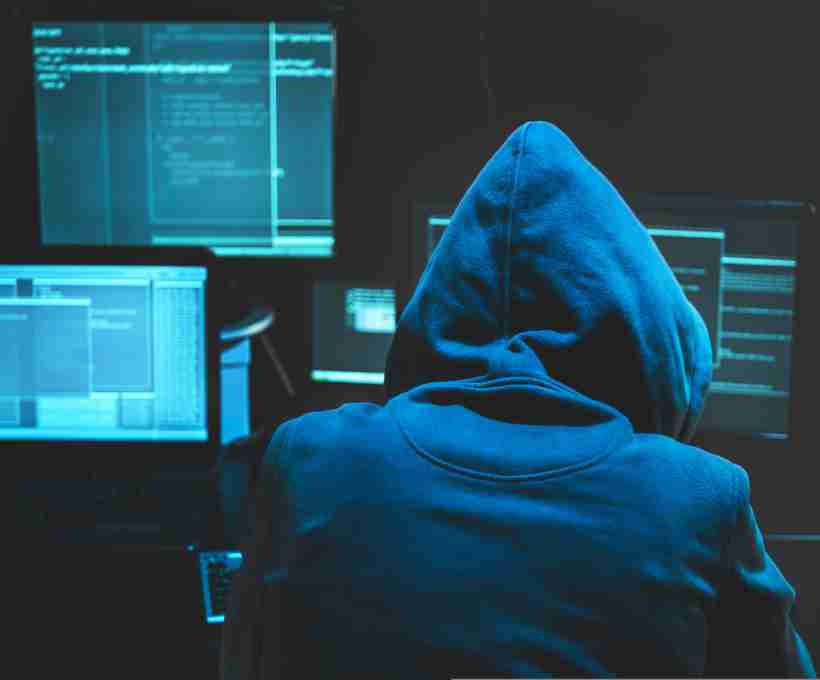In today’s hyper-connected world, cybersecurity has become a necessity. With cyber threats evolving daily, ethical hackers — the good guys of the hacking world — have never been more in demand. But a question that often comes up is, “Is it risky to be an ethical hacker?”
Short answer: Yes, it can be risky. But just like any profession with high stakes, understanding the risks and knowing how to manage them can make ethical hacking not only rewarding but also relatively safe.
In this detailed guide, we’ll unpack everything you need to know about the risks associated with ethical hacking and how to navigate them.
What Is Ethical Hacking?
Before diving into the risks, let’s quickly cover what ethical hacking actually means.
Ethical hackers, also known as “white-hat hackers,” are cybersecurity professionals who use their hacking skills for legitimate purposes — identifying vulnerabilities, protecting systems, and helping organizations strengthen their security posture.
They work either in-house, for consulting firms, as freelancers, or even bug bounty hunters.
Typical activities include:
- Penetration testing
- Vulnerability assessments
- Security audits
- Red teaming exercises
Ethical hackers operate with permission and within legal boundaries. But despite their positive role, risks still exist.
Why Being an Ethical Hacker Can Be Risky
1. Legal Risks
One small mistake in authorization or documentation, and you could find yourself facing legal action. Ethical hackers must strictly operate within their defined scope. Hacking outside of this scope, even unintentionally, could lead to serious consequences.
Example: If you’re hired to perform a penetration test on a company’s website but accidentally probe a third-party system linked to it, you could be accused of unauthorized access.
Tip: Always have a clear, signed “Rules of Engagement” document before starting any assessment.
2. Misunderstandings and Reputation Damage
In some cases, ethical hackers have been misunderstood or wrongly accused of malicious behavior. Misinterpretation by clients, law enforcement, or the public can damage your career and personal reputation.
Example: An ethical hacker who discovers a vulnerability and reports it may still be seen as a threat by uninformed executives.
Tip: Maintain detailed logs and reports to document every step you take.
3. Exposure to Sensitive Information
When you’re deep-diving into company networks and databases, you inevitably come across sensitive data like customer information, financial records, and intellectual property.
Even accidental exposure or mishandling could trigger breach disclosure laws, lawsuits, or regulatory penalties.
Tip: Stick to strict data handling protocols and avoid accessing unnecessary data.
4. Risk of Retaliation
If you work as a bug bounty hunter or perform disclosure without a formal agreement, some organizations may retaliate against you.
Companies may:
- Threaten legal action
- Demand damages
- Ban you from their platforms
Tip: Use platforms like HackerOne or Bugcrowd that mediate disclosures safely.
5. Mental Health Challenges
Constantly thinking like a hacker — looking for weaknesses, anticipating attacks — can take a toll on your mental health. Ethical hackers often deal with high stress, tight deadlines, and the heavy responsibility of protecting massive amounts of data.
Tip: Prioritize mental health, seek community support, and take regular breaks.
6. Job Security Issues
Not all companies appreciate or understand cybersecurity work, leading to underfunding, overwork, or job instability for ethical hackers.
Tip: Build a strong portfolio and maintain diverse income streams (consulting, bug bounties, part-time contracts).
How Ethical Hackers Can Manage and Mitigate These Risks
Being aware of the risks is the first step. Here’s how you can manage them effectively:
1. Stay Legally Protected
- Always get written permission before starting any work.
- Define a clear scope of engagement.
- Consult with a cybersecurity attorney for contracts.
- Follow responsible disclosure policies.
2. Continuous Learning
Cybersecurity is ever-evolving. To stay safe and relevant:
- Obtain certifications like CEH (Certified Ethical Hacker), OSCP (Offensive Security Certified Professional), and CPT (Certified Penetration Tester).
- Stay updated with the latest laws, vulnerabilities, and tools.
3. Professionalism and Documentation
- Maintain detailed logs of activities.
- Document findings clearly.
- Communicate professionally with clients.
4. Insurance
Professional liability insurance can protect you against claims of negligence, mistakes, or unauthorized access.
5. Use Trusted Platforms
When hunting bugs or finding vulnerabilities, use trusted platforms to submit your findings.
6. Build a Strong Personal Brand
Having a respected online and offline presence can protect you from misunderstandings.
- Publish blogs
- Speak at conferences
- Engage in ethical hacking communities
Real-World Stories: Ethical Hackers Who Faced Risks
1. The Marcus Hutchins Case
Marcus Hutchins, famous for stopping the “WannaCry” ransomware attack, was later arrested by the FBI for alleged involvement in prior malware creation.
Even though he contributed massively to cybersecurity, past mistakes caught up with him.
Lesson: Always maintain clean, ethical conduct, and understand that your actions today can have future implications.
2. The AT&T Hacker Incident
In 2010, a group of hackers discovered a vulnerability in AT&T’s systems that exposed iPad user emails. Even though they disclosed the issue, they faced criminal charges.
Lesson: Even well-meaning disclosure without permission can backfire.
Is Being an Ethical Hacker Worth the Risk?
Despite the risks, ethical hacking remains an incredibly fulfilling and high-paying career.
Pros:
- High demand across industries
- Good salary packages
- Opportunities to work globally
- Constantly evolving and intellectually stimulating
- Positive impact on digital safety
Cons:
- Legal and reputational risks
- Mental health challenges
- Need for constant upskilling
Bottom Line: If you are disciplined, ethical, and well-prepared, the rewards far outweigh the risks.
Final Thoughts
So, is it risky to be an ethical hacker? Yes. Is it worth it? Absolutely, for those passionate about cybersecurity and willing to act responsibly.
With proper legal precautions, continuous education, professional behavior, and mental resilience, ethical hacking can be a secure and rewarding career path.
Key Takeaways:
- Understand your legal boundaries.
- Stay educated and certified.
- Maintain clear documentation.
- Protect your mental health.
- Build a strong professional brand.
In a world increasingly reliant on technology, ethical hackers are not just needed — they are critical to our future.
If you’re considering a career in ethical hacking, prepare wisely, move carefully, and you can become one of the digital world’s most respected defenders.





